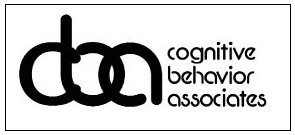SEXUAL AND GENDER MINORITIES
Who
Sexual and Gender Minorities (SGM) is used as an umbrella term for Lesbian, Gay, Bisexual, Transgender, Queer, Intersex, Asexual, etc. Minority stress theory states that SGM face stress from being targeted and not validated. This stress causes a conflict between one’s internal self and the world. Dominant culture may be more difficult to connect with for SGM.
Sexuality and gender are separate constructs. Sexuality refers to a person’s sexual orientation. Gender is person’s social construct and/or identity. Since both sexuality and gender are non-binary constructs, many different types of people exist within SGM. Non-binary refers to being on a spectrum as opposed to the two-part gay or straight; boy or girl. For instance, SGM can include a combination or absence of sexual orientation and/or gender identity.
How Many
Nearly 4.7% of people in the U.S. identify as SGM. The rates of anxiety and depression are more than double that of non-SGM populations.This rate is not surprising due to SGM facing discrimination and social stigma on a higher basis than non-SGM populations. These affect mental health, such as being targets of aggression and/or experiencing the cost of hiding. SGM also face higher levels of panic attacks, suicidality, eating disorders, social anxiety, generalized anxiety, trauma exposure, and substance abuse than non-SGM populations. These rates are due to the fact that there are consequences to being either out or in the closet. Being more out puts SGM at risk of being a target. Being in the closet puts SGM at risk of stress from hiding. SGM are not more prone to mental health problems because there is something wrong with them. Instead, the problem is the treatment that SGM face living in a society that can oppress them.
What Issues
Common mental health areas among SGM are:- Stress management (e.g., coping skills, substance abuse recovery, etc.)
- Gender dysphoria
- Coming-out
- Sexual health (e.g., safer sex, STIs, etc.)
- Housing issues (e.g. being assigned to a room based on sex assigned at birth)
- Employment, (e.g. pronoun usage, bathrooms, etc.)
- Finding affirmative medical professionals (we provide evaluations for medical transition and supporting documentation)
- Social advocacy
Our Approach
CBT for SGMAffirmative Cognitive Behavior Therapy (ACBT) is found to be highly effective with SGM. Our programviews SGM as normal identity development. It affirms sexual and gender identity as a positive human experience.
ACBT advocates for the validity of SGM. It recognizes the impact of oppression, particularly heterosexism and transphobia.
Our program aids in coping, problem-solving skills, and social support. These are protective factors against minority stress. ACBT identifies, evaluates, and helps change illogical thoughts and behaviors. Cognitive theory is based on how emotions and behaviors are influenced by perception. Our program helps people to find way to think about their situations and problems in the most effective and accurate way. This helps SGM make healthy emotional and behavioral changes.
Our program offers an active and goal-oriented type of therapy. It addresses behavior through learning theory and activity therapy. Our program aids in developing healthy responses, sometimes specific to the individual and sometimes more broadly affecting SGM. When issues are more broadly affecting SGM, such as oppression, for instance, ACBT helps in locating the issue as environmental. ACBT also addresses negative attitudes. People often use negative attitudes learned from oppressive environments. This provides an opportunity for new learning and positive experiences. ACBT clients are given homework to practice what they learn outside of sessions as a way to experiment with change.
Our program recognizes that changing thoughts or behaviors cannot easily change some events.Our program also asks clients to list positive feelings about being SGM.

